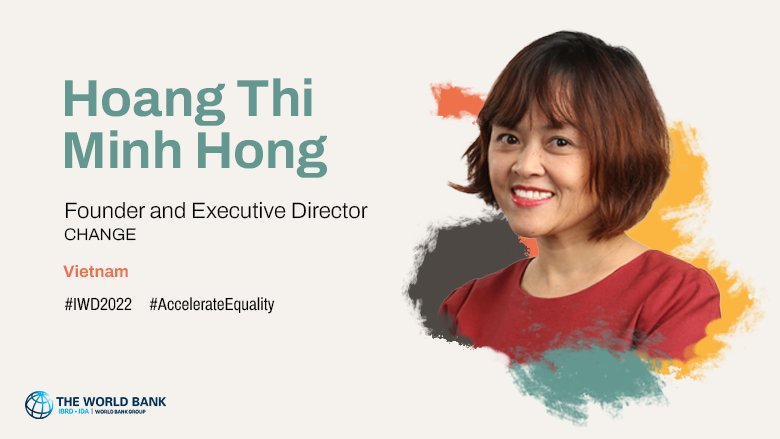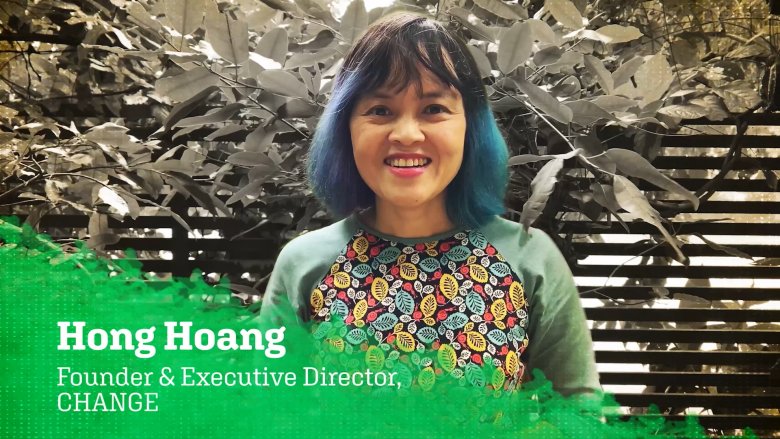How did you get into environmental activism? What inspired you to start working in this field?
I think it was destiny. In 1997, it was pure luck I was selected to join an expedition to Antarctica, and I became the first Vietnamese ever to set foot on that cold but magnificent continent. That trip opened my eyes to the world¡¯s environmental issues and turned me into an environmentalist after return.
But it was not until 2009 when I went back to Antarctica the second time that I decided to do something more impactful, because in that second trip, I really saw climate change with my naked eyes. By that time, I had a two year-old son, and I realized that my son and all other kids in the world were not responsible for creating climate change, but they would have to suffer from the consequences! I went back with a big dream to mobilize thousands of people in a youth-led climate movement in the country. And was born.
If you could describe yourself in 3 words, what would they be?
Crazy, Crazy, Crazy.
Oh wait, I have to be serious, right? OK, what about: Passionate, Creative, and Energetic?
This year's theme is 'Equality today for a sustainable tomorrow'. In your eyes, what is the intersection between climate change and gender equality?
If you come to the Mekong Delta during the drought and salinization season, you will see that most of the people waiting in long lines to get freshwater are women. .
They take care of the family, especially children who are also vulnerable to climate change, but their livelihoods usually depend more on the soil, the water, the climate, the natural resources on their own land, compared to men who can have more job opportunities elsewhere.
However, . And most of the founders or directors of environmental NGOs in Vietnam I know are women! Women rock! We will save the world!
As a veteran climate activist in Vietnam, how do you assess the changes in public perception and actions towards climate change over the years?
If we compared with when I started 25 years ago, of course there have been huge changes. The public in general is definitely a lot more aware about the climate change situation, a lot more concerned about air pollution than 10-15 years ago. If you go on Facebook, you will see just any random people talking about the drought in their hometown, or how the recent unusually cold days are ¡°because of climate change.¡±
I used to be very much alone, but now, there are so many youth groups working to address climate change and environmental issues in their own provinces. Our climate program is also getting so much more support from different communities, and especially from the private sector who has recently been accelerating their interventions around climate goals because they have realized that it is how they avoid risks. And all these changes are what have kept me moving forward.
When you work on climate change for 25 years and you see that climate change is still getting worse, you need to see these changes, to know that what you have been doing does have an impact, and that there is still hope. However, we do need a bigger push for stronger action by all players in Vietnam as climate change is happening much faster than anticipated. There is not much time left.
What have been the biggest lessons you have learned as a leader?
I used to look at climate and environmental issues from the perspective of an environmentalist, an activist. I was angry at others who weren¡¯t seeing it that way. I was not aware how people might have different angles looking at it, how they might see different types of threats and opportunities. But then, experiences and exposure to a lot of great people taught me to look at environmental problems from different perspectives, because it is how everything else in the world is. When it comes to climate change, people like me would focus on the rising temperatures, while medical doctors would only see the health risks associated to it, a children rights group would only care if children can still go to school, while a local business owner would worry how it might hurt his relocation plan.
What do you enjoy most about your work?
I work with all the young people, and they are so much fun to work with. My team members (mostly in their twenties) are so lively, creative, passionate, and are full of energy. They bring brand new ideas to any activities which makes me never feel bored. (This would not be the case if you worked with more senior staff, right?)
They teach me so many new things, and keep me on the latest trends, which is really important because we work on inspiring and mobilizing the community so we need to understand what the community likes or believes in. My mission is to empower young people, but I always think I am the one who get empowered by the young people around me.
What would you say to young women who are trying to pursue their dreams and dealing with the inevitable ups and downs?
I would say to them: we women are the ones that will make this world a better place. I want you to be confident, to be nice to yourself, be indulgent with yourself, and do anything to make you happy, because only when you are happy, you can make others around you happy. Do what you feel most important to you, and that includes pursuing your dreams. Don¡¯t worry about the ups and downs, because believe me, we are a lot more resilient than men.
What can we do better to improve or accelerate gender equality?
I would like to quote (not directly on gender equality; but close enough): ¡°Feminism isn't about making women stronger. Women are already strong. It's about changing the way the world perceives that strength¡±.
I think improving gender equality does not only require projects and campaigns to fight for women¡¯s rights, but also requires everyone, including the women themselves, to change the mindset, and acknowledge that strength and contributions that women make. My favorite woman, , said: "The difference between a broken community and a thriving one is the presence of women who are valued.¡±
What are your hopes and plans for the future?
I plan to continue to work on securing the support that they need, connecting them with the right people and networks who can help them sustain the climate action. I plan to further train the team, for them to take over from me soon.
**The views expressed in this interview do not necessarily represent the views of the World Bank Group.


